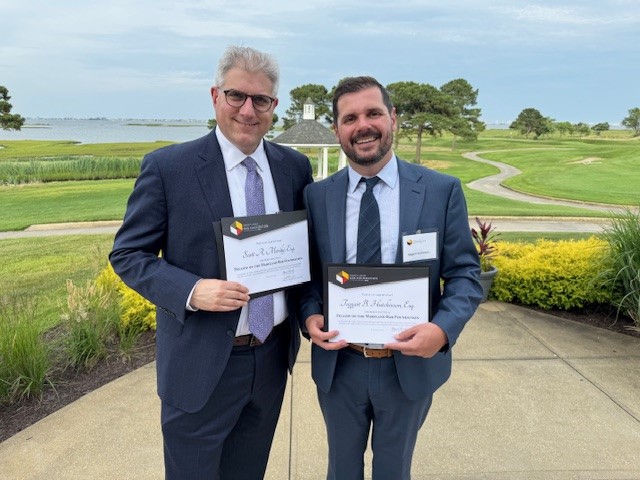
A popular technique used by some business owners to reduce estate taxes and facilitate business succession planning may soon be closing. On August 2, 2016, the IRS issued proposed regulations which, if adopted, would substantially reduce the ability of business owners to achieve certain valuation discounts on the transfers of minority interests in family owned businesses for gift and estate tax purposes. As the proposed regulations must go through a 90-day public comment period, and will not go into effect until 30 days after being finalized, these changes will not likely take effect until early 2017. That creates an excellent planning opportunity now until the end of the year to take advantage of the existing law before potential changes take effect.
Current Business Valuation Law Benefit for Estate & Gift Tax Planning
Under current law, the value of a fractional share in a business is not as a mere fraction of the value of the whole business, but factors in certain discounts that a neutral third-party buyer would normally require. For example, a buyer would generally expect a discount to compensate that buyer for lack of control of the business if receiving less than a controlling interest. In addition, that buyer would also want a discount for the lack of marketability of a fractional interest if there were restrictions on his or her ability to sell that interest. Depending on the facts and circumstances, these discounts could be as much as fifty (50%) percent of the proportionate part of the business. For purposes of simplicity, I will use a 50% discount in my example below.
Assume I own a one hundred (100%) percent ownership interest in a business which as a whole is worth $10 million. That interest is worth $10 million. However, if a majority vote in interest (more than fifty percent (50%)) is needed to approve any action in the business, and that no interest in the business can be transferred without the consent of a majority vote in interest a neutral third-party buyer would expect discounts for anything less than a controlling interest.
If I gift a twenty-four (24%) percent in the business to each of my three children and retain the remaining twenty-eight percent (28%), none of us will have control of the business and none of us will be able to make any further transfers of interest without consent (one of my three children will need to vote with me on any issue to reach a majority interest). Based on the lack of control and substantial restrictions on transfer, the interest owned by each of my three children is not worth $2.4 million, but rather is worth $1.2 million. Further, the interest that I have retained is not worth $2.8 million, but rather is worth $1.4 million.
I have therefore gifted seventy-two (72%) of the business to my children utilizing only $3.6 million dollars of my gift tax exclusion and the value of the interest retained by me is now worth only $1.4 million dollars. Instead of having a $10 million taxable estate on my death with a marginal federal tax rate as high as forty (40%) percent and a marginal Maryland estate tax rate as high as sixteen (16%) percent, I would now have a federal estate below the $5 million dollar exemption and may have a Maryland estate below the applicable exemption amount (which is currently $2 million and will be gradually increased to $5 million dollars (indexed for inflation) by 2019). I have therefore avoided the federal and Maryland estate taxes involved in passing my business down to my children.
Take Advantage of Current Tax Planning Opportunity Before 2017
The IRS proposal, if adopted in its current form, would make it more difficult for owners of family businesses to utilize these types of valuation discounts as part of their business planning/estate planning strategies.
There is also uncertainty with an upcoming November election. Democratic presidential candidate, Hillary Clinton, has indicated that if elected she would work towards changing the gift and estate tax laws back to the way they existed in 2009. At that time, the estate tax exclusion was only $3.5 million per person, the gift tax exclusion was only $1 million per person, and the marginal federal gift/estate tax rate was 45%. Republican presidential candidate, Donald Trump, has indicated that he does not support these proposals.
In this time of uncertainty, the one thing we can be certain of is that a planning opportunity exists now to take advantage of the existing law before potential changes could take effect in 2017. Contact Glenn Anderson at 301-762-5212 to take advantage of this tax planning opportunity.
Miller, Miller & Canby has assisted clients with business law, tax planning and estates & trusts for 70 years. Glenn Anderson leads the Business & Tax and Estates & Trusts practice groups at Miller, Miller & Canby. As both a CPA and a practicing attorney, he has developed a recognized expertise in taxation law.
Please feel free to contact Glenn or any of the business & tax planning attorneys at Miller, Miller & Canby to take advantage of current business succession planning tax law and other tax planning needs. View more information about Miller, Miller & Canby's Business & Tax practice by clicking here. View more information about Miller, Miller & Canby's Elder Law and Estates & Trusts practice by clicking here.








Share this Article: